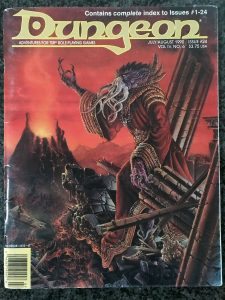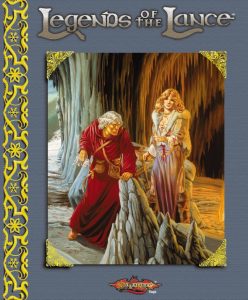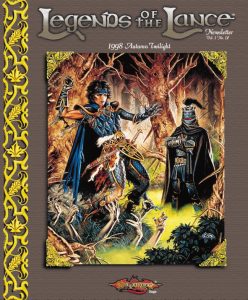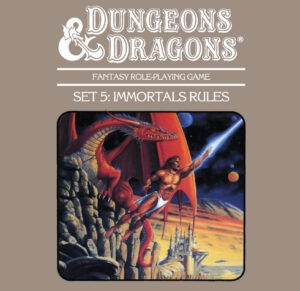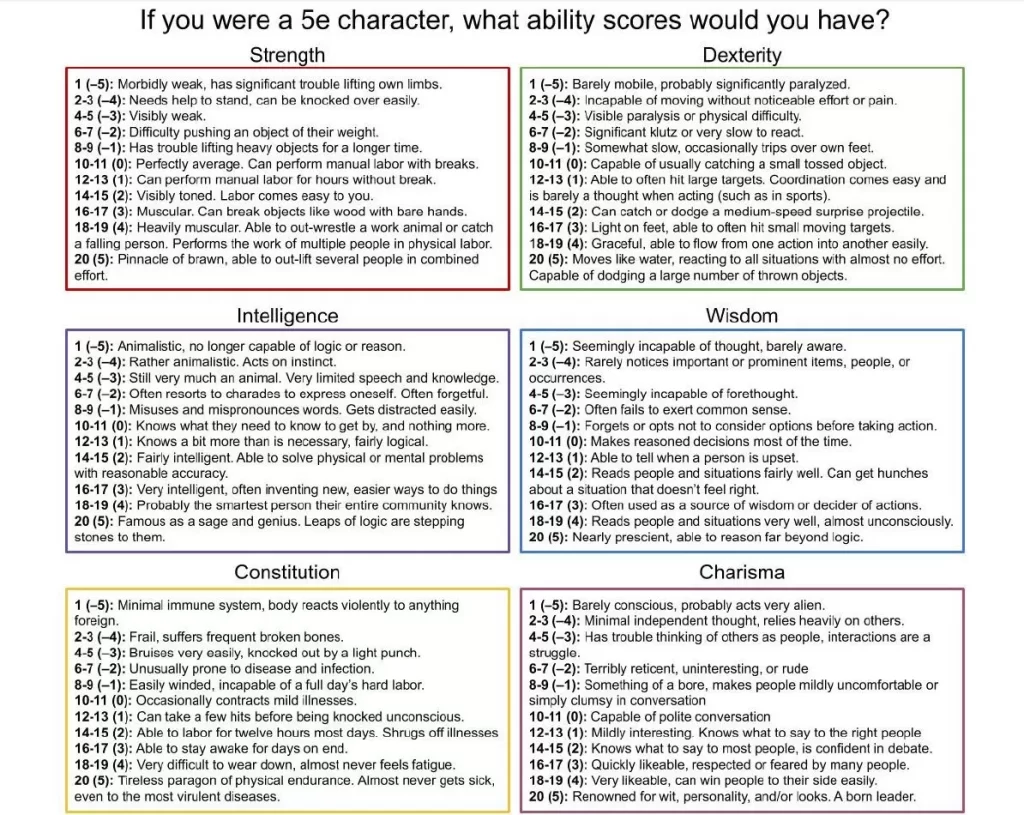
Dungeons & Dragons, commonly known as D&D, is a role-playing game (RPG) that relies heavily on imagination, storytelling, and dice. At the heart of this game is the character: a representation of the player within the fictional world. Just as people in the real world have strengths, weaknesses, and unique characteristics that define who they are, characters in D&D have attributes that quantify their innate capabilities. These are called Abilities.
The Core Abilities
In D&D, the six fundamental Abilities are:
- Strength (STR): This Ability relates to physical power, muscle, and athletic prowess. A character with a high Strength score might be described as burly, powerful, or muscled, capable of lifting heavy weights and delivering strong physical blows. For example, a barbarian who can easily lift boulders or a knight who can wield a heavy greatsword with ease would have a high Strength score.
- Dexterity (DEX): Dexterity is all about agility, reflexes, and balance. It governs tasks that require a delicate touch or fast reactions. An acrobat performing breathtaking flips, a rogue sneaking silently and picking locks, or an archer with an unerring aim, would all have high Dexterity scores.
- Constitution (CON): This Ability reflects a character's health, stamina, and physical endurance. A character with a high Constitution can sustain more damage, resist illnesses, and survive in harsh conditions. Imagine a dwarf who can trudge through blizzards without tiring or a warrior who can fight on despite grievous wounds.
- Intelligence (INT): Intelligence governs reasoning, knowledge, and memory. Characters with high Intelligence are often scholars, mages, or tacticians. A wizard who has memorized countless spells, a detective piecing together a complex puzzle, or a strategist planning a war campaign would all be examples of characters with a high Intelligence score.
- Wisdom (WIS): While Intelligence represents book-smarts, Wisdom is about intuition, perception, and common sense. It guides decision-making and insight. Clerics channeling the power of their deities, druids attuned to the natural world, or a wise old sage offering advice - all might possess high Wisdom scores.
- Charisma (CHA): Charisma is the power of personality, charm, and leadership. It's not just about physical appearance, but the force of one's presence. A diplomat smoothing over a tense negotiation, a bard captivating an audience with tales of heroics, or a cult leader gathering followers - these are all examples of characters with a high Charisma score.
Functionality in the Game
Each of these Abilities is quantified by a score, typically generated during the character creation process. This score then translates to an Ability modifier, which impacts a wide variety of in-game checks and mechanics. For example, when a character tries to break down a door (a feat of Strength) or when they attempt to recall an ancient legend (a task for Intelligence), their respective Ability scores and modifiers come into play.
Examples in Play
Imagine a scenario: A party of adventurers is trying to infiltrate a castle.
- The rogue, with her high Dexterity, might climb up the walls or slip through a narrow window, avoiding detection.
- The wizard, relying on Intelligence, recalls an old blueprint of similar castles and provides the party with a potential layout.
- The cleric, channeling their Wisdom, senses an unholy presence lurking in one of the rooms, warning the party of danger.
- Meanwhile, the bard uses his Charisma to distract the guards, spinning a tale of a phantom army approaching from the east.
Each character's unique Ability scores and modifiers allow them to contribute to the adventure in distinctive ways.
Evolution and Importance
The concept of Abilities in D&D has been a foundational element since the game's inception in the 1970s. While other aspects of the game have evolved across various editions, these six Abilities have remained a constant, though their nuances and applications have seen changes.
Abilities are crucial because they define a character's potential and limitations. They set the framework for the narrative, influencing not only combat situations but also interpersonal interactions, problem-solving scenarios, and the overall narrative arc.
For players, Abilities provide a roadmap for role-playing. They hint at a character's backstory and future growth. A sorcerer might question why they have an unusually high Strength score, leading to a backstory involving manual labor in their youth. Similarly, a warrior with a high Wisdom might be portrayed as a reflective and philosophical figure, having learned from their years on the battlefield.
In the intricate tapestry of D&D, Abilities are the threads that outline characters, giving them shape and definition. They anchor the game mechanics to the narrative, ensuring that every dice roll and game decision is grounded in the character's identity and potential. Through these six core Abilities - Strength, Dexterity, Constitution, Intelligence, Wisdom, and Charisma - D&D offers a rich framework for storytelling, allowing every character to be as multifaceted and unique as the players who bring them to life.
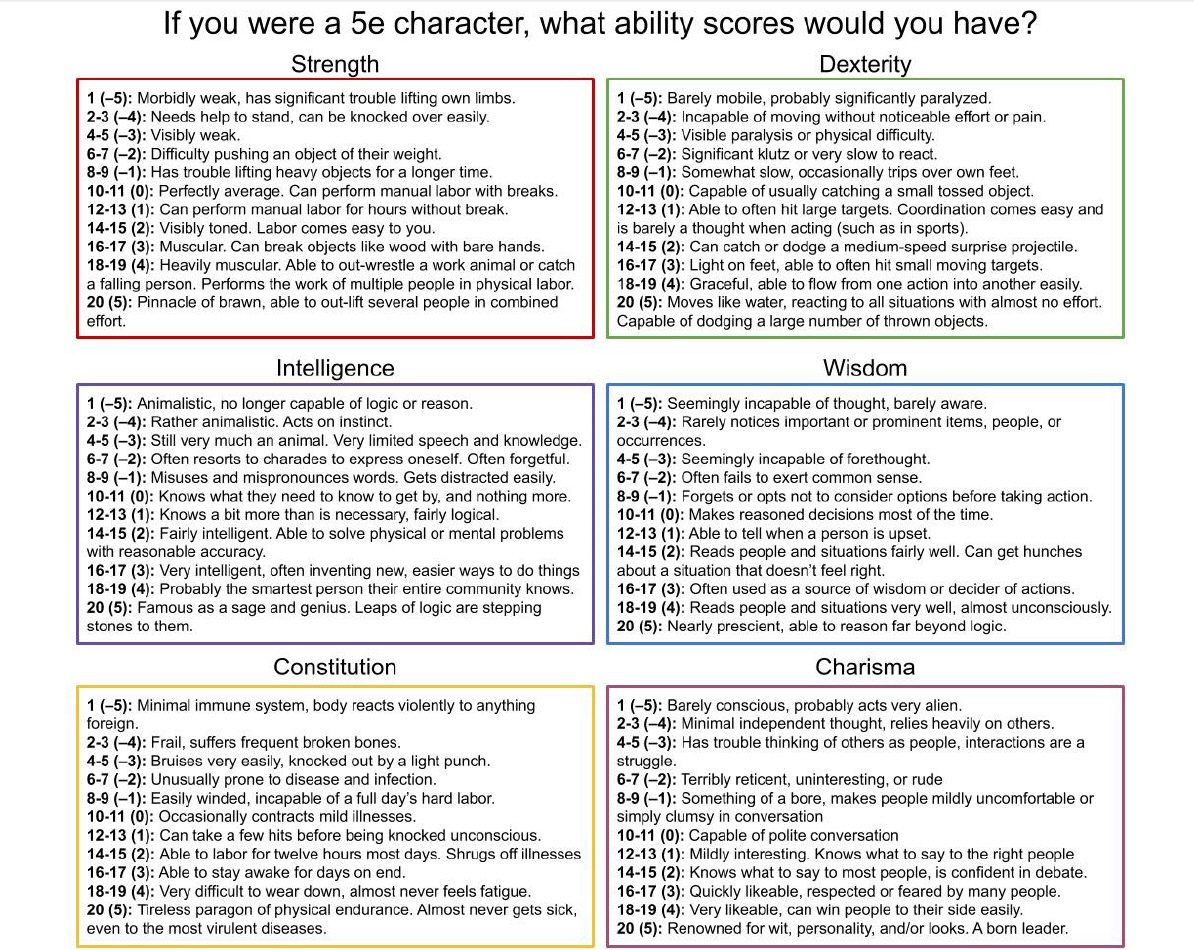
Read about Character Class Flow Chart for Dungeons and Dragons
